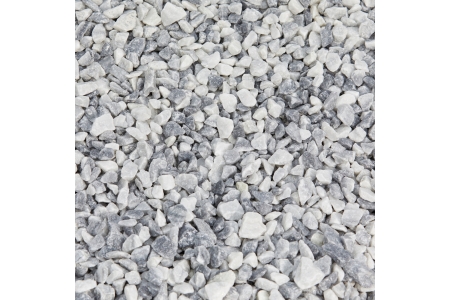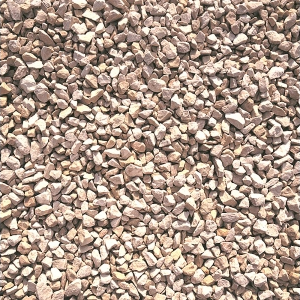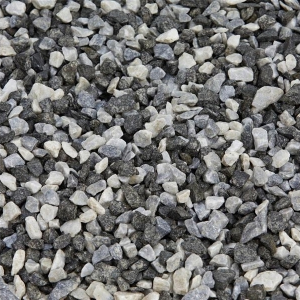How much does a new driveway cost? We explain how to budget for a brand new entrance
Quantity surveyor Tim Phillips explains how much to set aside for your driveway costs, including materials, installation prices and the hidden costs you might miss
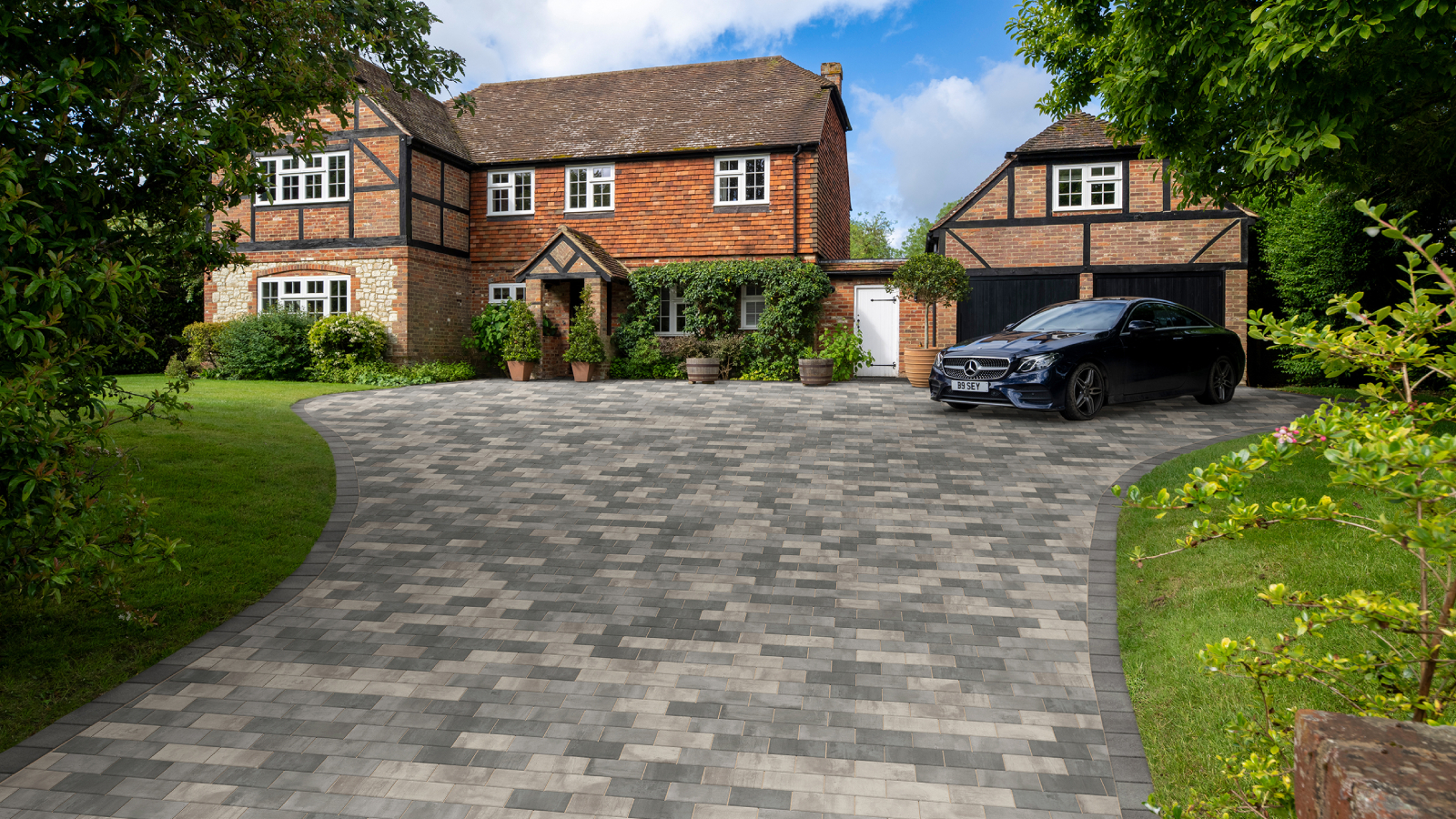
Bring your dream home to life with expert advice, how to guides and design inspiration. Sign up for our newsletter and get two free tickets to a Homebuilding & Renovating Show near you.
You are now subscribed
Your newsletter sign-up was successful
While your driveway is the gateway to your home, it's important to understand how much your driveway costs will eat into your external landscaping budget before you make any decisions.
The reality is that balancing functionality with kerb appeal is one of the hardest parts of getting your driveway ideas right, meaning when it comes down to the numbers, your dreams of a sweeping driveway may need to be reconsidered.
Calculating your exact driveway costs will of course involve a number of different factors, but understanding how materials, location, labour and materials will all play a part can help. Expert quantity surveyor, Tim Phillips explains just what drives your final driveway costs so you can start your journey towards a stunning entrance.
Which factors affect driveway costs?
In the UK – where a blend of tradition and modernity characterises our homes – the answer to 'what will my driveway costs be?' is as diverse as the driveways themselves.
From classic gravel drives reminiscent of bucolic rural countryside to sleek, contemporary block paving, the final cost for your driveway design is influenced by multiple factors, but the key ones to bear in mind are:
- Material selection: Driveway cost is greatly impacted by the choice of driveway materials. Resin-bound surfaces, block paving, tarmac, concrete, and gravel are popular choices . Every material’s price range varies according to availability, durability, and visual attractiveness.
- Material quality: Costs can be impacted by the thickness and grade of the material. Although more expensive, durable, high-quality materials frequently work better and last longer.
- Size: Driveway size and design complexity are significant factors. Larger driveways obviously cost more overall – since they require more labour and materials. Installation may become more complex and expensive if there are intricate designs, patterns, or curves to incorporate.
- Groundworks: Significant groundworks – excavation, levelling, or driveway drainage improvements and services relocation – will add to the overall cost. New installations often involve more groundwork compared to replacements — especially if the area needs substantial preparation before the laying of the new driveway.
- Site accessibility: The ease of delivering building supplies and plant to the driveway might impact expense. Restricted access could mean more manual labour, raising overall labour cost. Accommodating a mini digger on site to access the drive will be significantly cheaper and quicker than manual labour.
- Extra features: While adding lights, borders, or landscaping can improve the appearance, it can also raise the expense of the project.
- Regulations and permits: Complying with local regulations, obtaining permits, or obtaining planning permission for driveways (where required) will increase the project's cost. Make sure your driveway complies with regulations.
- Removal of the existing driveway: If a replacement driveway is required, any quotations should cover the driveway's removal and legal disposal. This process will raise the project's total cost.
- Drainage requirements: Additional drainage solutions may be required, depending on the site's particular requirements and building regulations. In order to avoid water collecting which can shorten the driveway's lifespan, proper drainage – such as an ACO channel and possibly a soakaway for a driveway – is crucial.
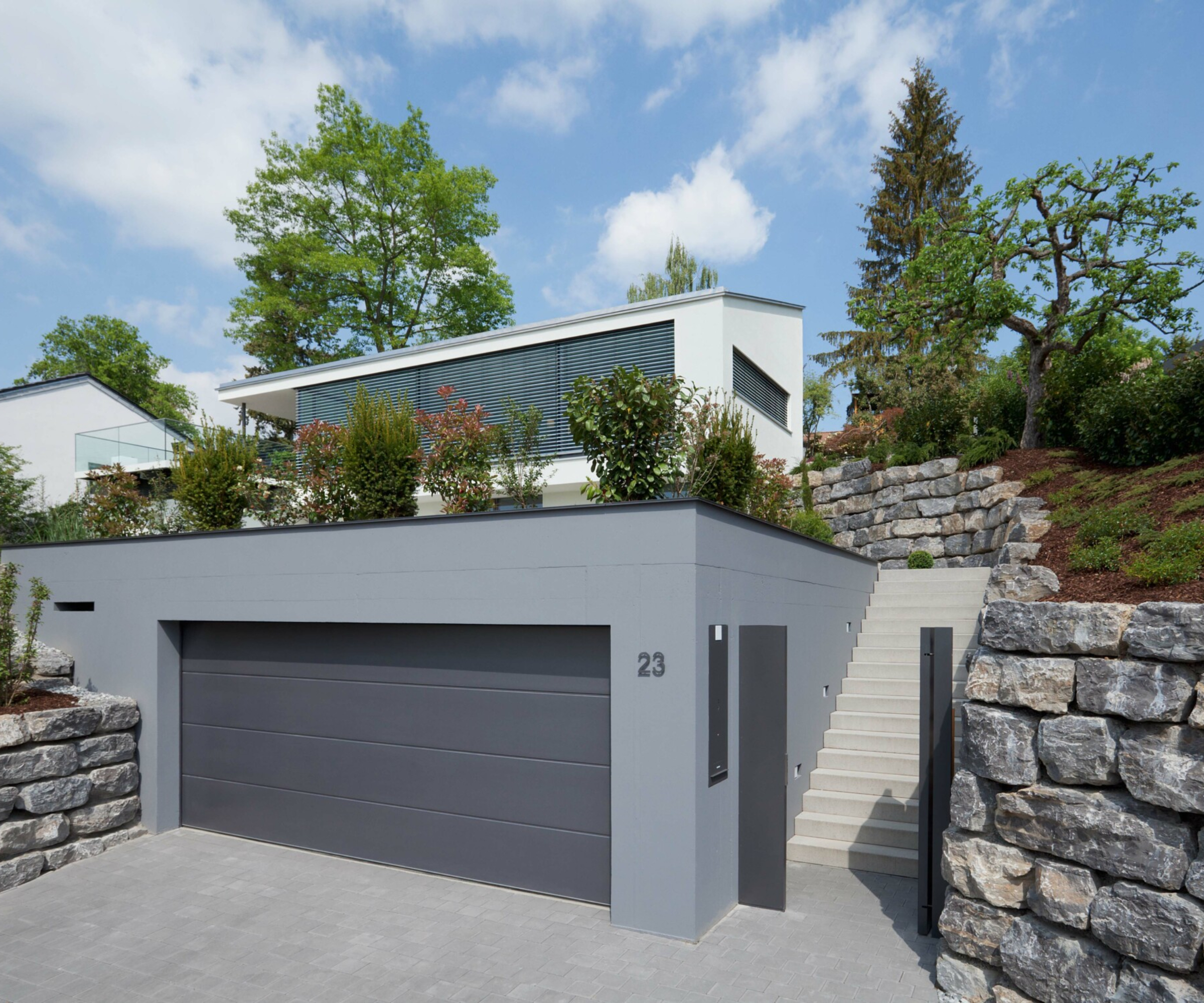
Average driveway material costs
Although the aforementioned factors will all impact your own driveway costs, on average, it can help to understand what you will pay per square metre for the different types of materials.
And, while we'll go into each one in more detail, the following table will give you an indication of where your choice might sit on the scale, from low to high:
Bring your dream home to life with expert advice, how to guides and design inspiration. Sign up for our newsletter and get two free tickets to a Homebuilding & Renovating Show near you.
Type | Average Material Cost |
Gravel | £15/m2 |
Block paving (concrete) | £25/m2 |
Concrete | £50/m2 |
Tarmac | £55/m2 |
Resin | £75/m2 |
Stamped concrete | £85/m2 |
Block paving (clay) | £85/m2 |
*based on a typical driveway, sub-base excluded
Driveway foundation costs are essential for a good base
Regardless of your material choice, a driveway will only be as good as the foundations it’s laid upon. Much the same as a house is built on firm foundations, a driveway is no different – it’s built on a stone sub-base and sand.
A typical driveway will need to take the weight of your car – and possibly the occasional delivery van – so it doesn’t have to be a full road construction. Nevertheless, it will require excavating to a firm strata, removing any clay or rock if present.
The most common driveway materials will require a minimum of 150mm well compacted MOT Type 1, as a sub-base along with a weed membrane barrier to prevent weed growth.
A driveway measuring 4.8 x 2.4m (11.52m2) should require five bags of MOT Type 1 Sub Base Bulk Bags, such as this one from Wickes (if excavating to a 150mm depth), costing approximately £425. A heavy duty weed membrane will cost £52 and cover up to 25m2.
Factor in some simple plant machinery (such as wacker plate) from a tool hire company – approximately £64 for a weekend hire – and your base should be ready for the desired driveway material.
How much does a gravel driveway cost?
Most gravel driveway ideas can be laid on a DIY basis as long as you have a sufficient base in place.
Bags of gravel cost £150-£190/bag and the depth of your driveway will determine how much a tonne of gravel will cover. Generally, a gravel driveway needs to be at least 50mm deep, so if this is the approximate depth you're using for your driveway, a tonne of gravel ought to cover 10–15m2.
If you want a tradesperson to carry out the works, then budget for a two-man team at £220 per day.
Try these gravels for your driveway
What should I budget for concrete driveway costs?
There are two types of concrete driveway, each of which could suit some front garden driveway ideas better than others.
The first is unreinforced concrete poured and left to cure with no pattern – apart from maybe a 100mm edge trowelled border. Concrete driveway installation typically costs £50–£70/m2 and labour costs can range from £200–£350 per day, depending on the complexity of the job.
The other option is concrete that’s embossed or patterned to mimic other materials and textures. This is called stamped concrete – sometimes referred to as imprinted concrete. There’s an abundance of patterns to choose from including wood, slate, flagstone and brick.
Budget from £3,000 for a 35m2 driveway. My advice is that this is best left to the professionals. Remember to include an expansion joint in large areas of concrete driveway.
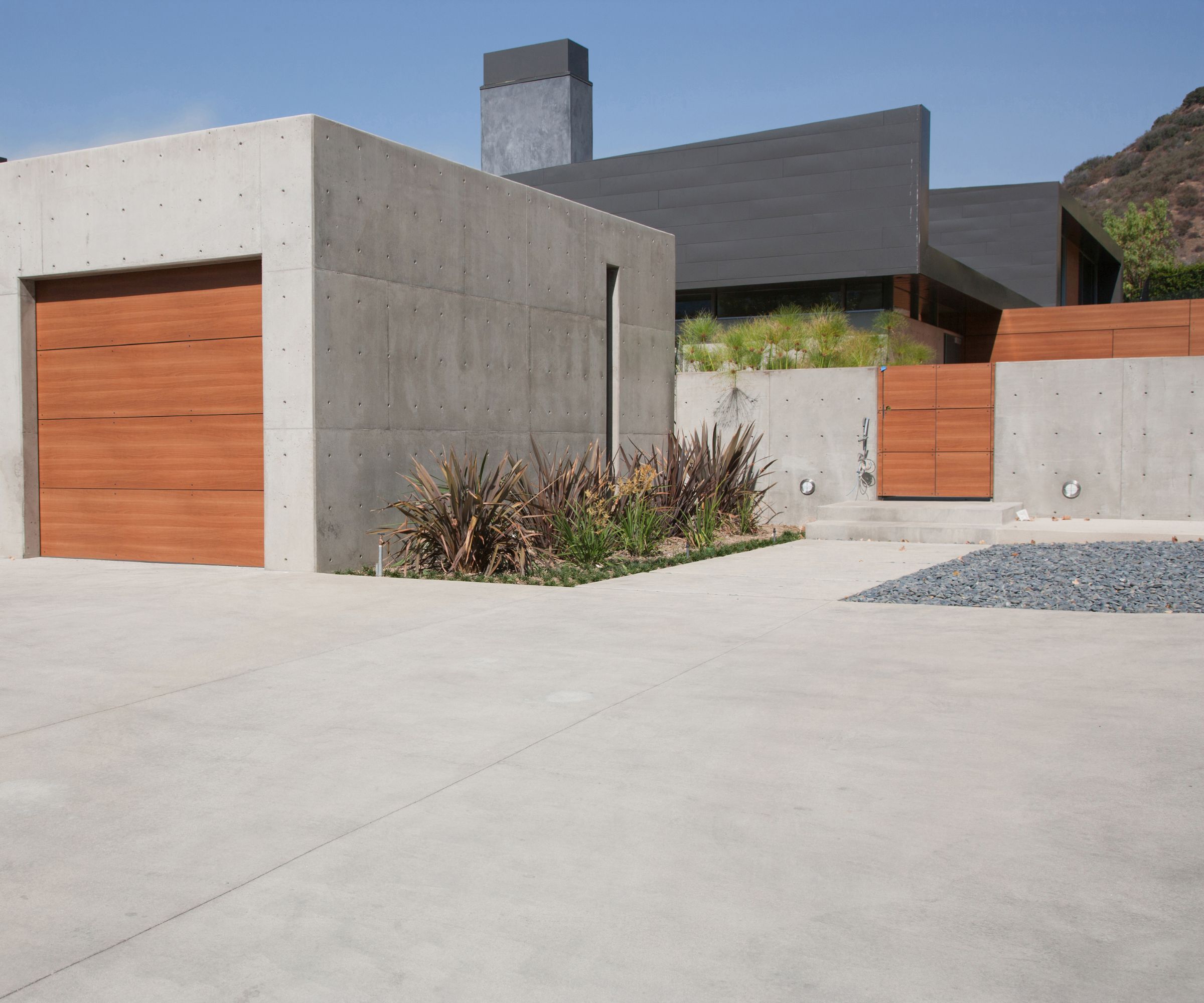
Calculating resin driveway costs
Resin-bound driveways marry strength, longevity and aesthetics, presenting a surface that is not only adaptable but also requires minimal maintenance. Their visual appearance is often popular among homeowners looking to inject a little extra kerb appeal.
It's a resilient solution crafted from natural aggregates, marble, recyclable materials and quality resin, creating a sustainable and visually pleasing option.
For your resin driveway costs, you should have a budget that ranges from £50–£75/m2. This should include material, installation and potential additional features. Once your budget is defined, seek a minimum of four quotes from reputable resin driveway installers. This step ensures a comprehensive understanding of market rates and services, empowering you to make an informed decision and entrust your project to qualified professionals.
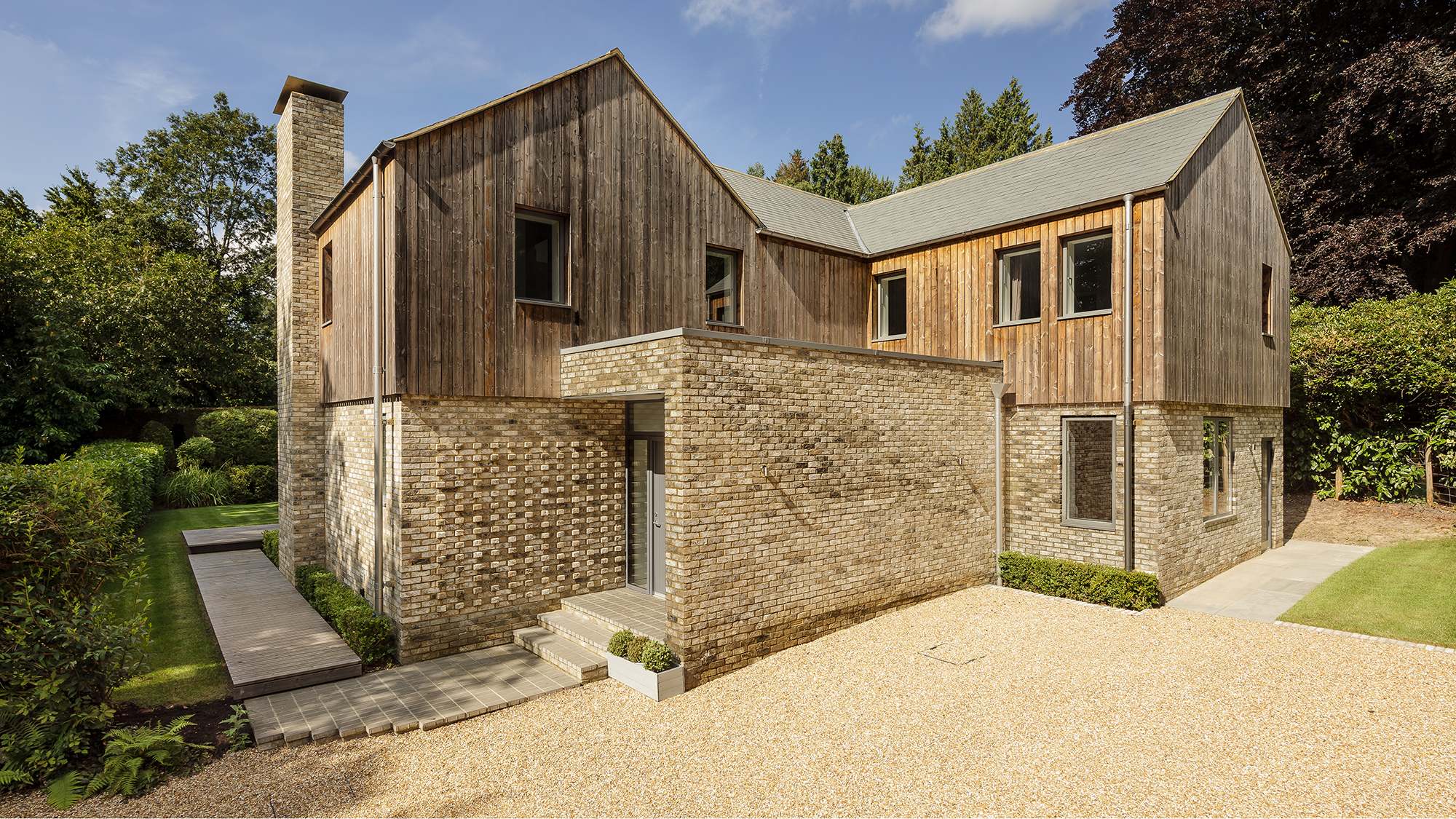
Tarmac driveway costs can be a cost-effective option
While tarmac is not always the first choice that springs to mind with those looking for cheap driveway ideas, it actually has a huge amount going for it when it comes to driveways.
Tarmac is a very resilient, low-maintenance and aesthetically pleasing driveway option which is why many homeowners choose it. When laid correctly it won't need to be replaced for a number of years and requires zero maintenance.
I’d also recommend this type of driveway being installed by a professional contractor and not on a DIY basis. Budget around £55-£70/m2 and remember to consider kerb edgings to stop the tarmac from moving.
Block paving driveway costs can vary depending on material choice
One of the most common types of driveway is block paving. When installed properly, it can be a beautiful feature of a home. Available in a variety of shapes and sizes, the material is manufactured from concrete or clay to cobbles and random setts – concrete being on the lower end of the price scale.
When it comes to how to lay block paving, it's best laid on a bed of 75mm sand, which is then compacted with a wacker plate. When the drive is complete, the block paving has kiln sand brushed into its joints to prevent movement and also weed growth.
Clay blocks cost on average £85/m2, with concrete starting at £25/m2. A concrete tumbled Tobermore Tegula Trio Brindle Block Paviour (three sizes per pack) will cost circa £48/m2. But, do remember that the colour on a concrete block paver will wash out over time.
You can buy a pack of Tobermore Tegula Trio Brindle from Travis Perkins that will provide you with 13.05m2 for £721.04 incl VAT.
My clay paved ‘Castleyard mixture’ driveway was laid in 2005 in a herringbone block paving pattern and is still the same colour 19 years later. It’s had a few power-washes and been resealed overtime, but is still in excellent condition. A 25kg bag of kiln dried sand will cover approximately 5m2 and will cost about £8.50 a bag.
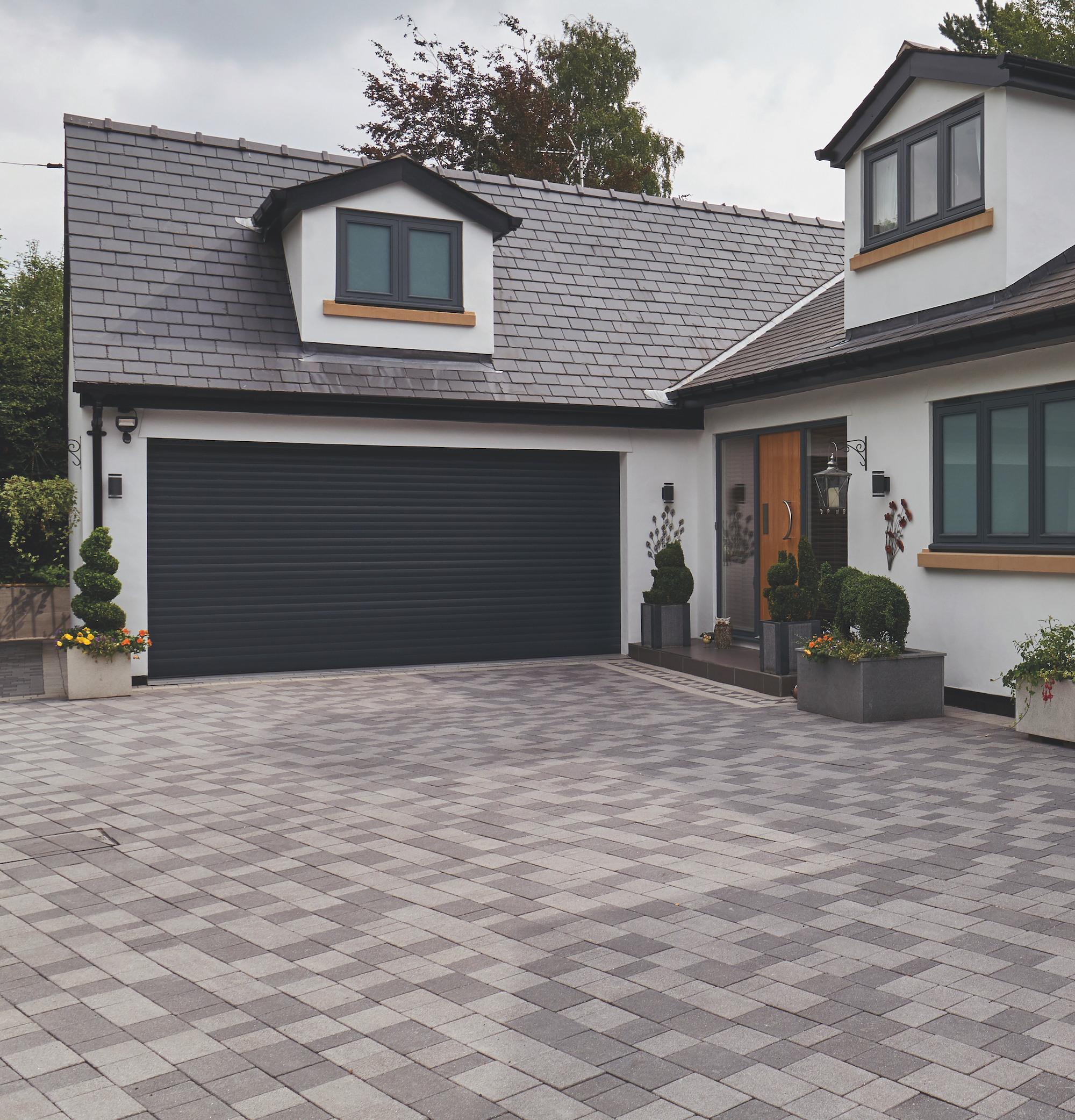
Don't forget driveway installation costs
The supply of the materials is very likely to be costed based on the size, giving you a price per square metre, but it's common for labour for driveways to be costed as a day rate instead.
You can expect this to be anywhere from £150 to £400 per day, depending on the company in question, the materials used, the number of tradespeople required and other factors.
Will installing a driveway myself save money?
For certain driveway materials, DIY may be an option. For example, those looking at how to lay a gravel driveway will be pleased to hear that this is relatively easy, if not rather hard work.
However, this will primarily depend on the project's complexity, your level of expertise and the material you choose. If you decide to proceed with a DIY driveway project, start with a small area to gain experience and confidence.
As a word of caution, it's also worth noting that while a competent DIY enthusiast might be able to construct a basic concrete driveway with a basic design, handling concrete calls for expertise and familiarity with the curing procedure. It is advised to seek professional guidance for larger areas or more complex designs.
Tarmac, resin and block paving are also best left to the professionals due to the processes and equipment involved. Seeking professional assistance is often the safer and more reliable option.
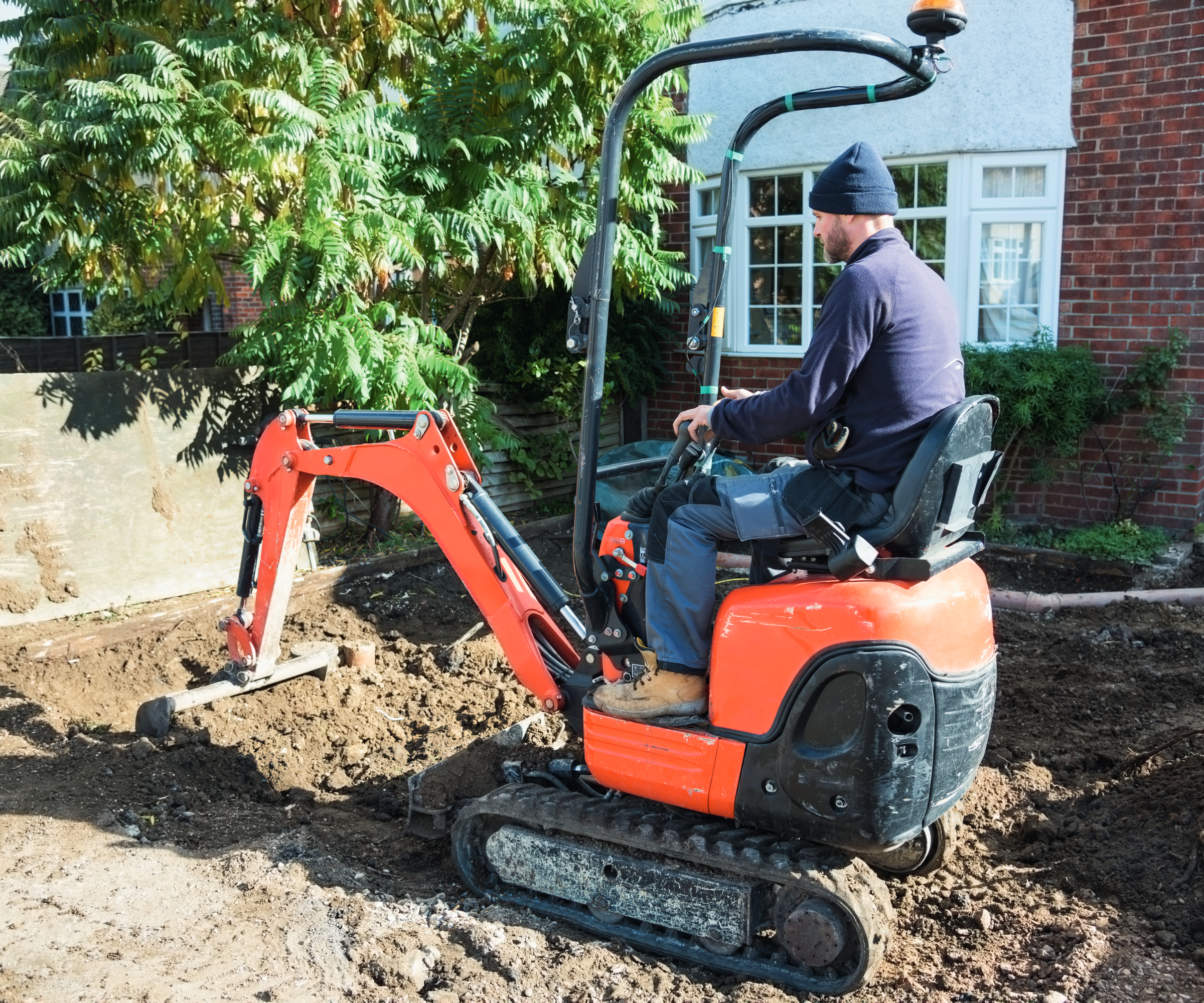
Be aware of hidden driveway costs
It's crucial to take additional costs into account when designing a new driveway in addition to the basic construction costs. The following are some potential additional budgeting costs.
Gates: You’ll have to pay extra to erect driveway gates if you want privacy or security. The total cost will depend on the kind of gate, its size, material and whether it’s automated or manual. There are many choices of metal or timber gates – either manufactured or bespoke. Also consider manual or automatic gate control.
Anti-theft bollards/posts: Adding anti-theft elements to your driveway can increase home security. The type of anti-theft gadgets and their installation procedure will determine the final cost. It could be an automatic rising ‘Intellipost 500’ bollard from £1,950 or a Bison stainless steel removable bollard – which simply slots in manually – from £295.
Landscaping: Adding landscaping features to your driveway can improve its overall appearance and increase the appeal of your home and the completed driveway. This may involve adding flowers, shrubs or trees to the driveway's borders. Consider the amount that plants, soil, mulch, and any potential requirement for professional landscaping services in your overall budget.
Outdoor lighting: Installing some great driveway lighting ideas alongside your driveway can improve visibility, safety and the character of your property. Choose from ‘drive over’ lighting (from £40 each) or lighting posts (from £70 each) to accentuate your driveway. Lighting styles and the intricacy of installation will determine the final cost.
Turntables: A fantastic concept for little driveways that can't provide a comfortable spot in which to turn around is a rotating driveway. After parking on the circle, drivers simply turn their car 180 degrees with a manual or powered turntable. Turntables which range from £12,500 upwards can be a great idea when space is limited and busy roads are dangerous for reversing into. But before making any decisions, consult your electrician and groundworkers; the turntable’s motorised mechanism needs to be wired in, buried, and installed correctly.
Driveway maintenance costs
Although not an initial expense, certain driveway materials may require routine sealing and upkeep to guarantee their longevity. This is certainly recommended for block paving, so it may be worth incorporating future costs for sealants, repairs, or resealing into your overall driveway costs. Something you may be glad of if you find yourself researching how to remove oil from a driveway that you haven't properly maintained.
Resiblock’s popular superior matt block paving sealer (five litre) costs from £75 and will cover 10m2 of paving.
Buy a pack of 2 Resiblock Superior Matt from B&Q for £144.04
Keeping on top of your driveway costs is essential whether you're turning your front garden into a driveway or making sure your modern driveway ideas match your self build.
However, if at the end of your driveway you're also considering a garage, this could also add to your costs. Make sure you get it right by finding out how to work out the perfect garage size for you. Or, if you're looking to save some money, you could consider whether a carport could provide you with enough cover for cars, bikes and bins.
Tim Phillips is an experienced senior quantity surveyor and estimator and has worked in the construction industry for over 35 years. He has worked on many varied projects in this time, for corporates, public bodies and private residential clients, managing multi-million budgets.
For the past 13 years, Tim has worked on a freelance basis, whilst managing his rental property portfolio. He has extensive experience of undertaking his own full-scale house renovations. He is also a speaker and expert at the Homebuilding & Renovating Shows.
